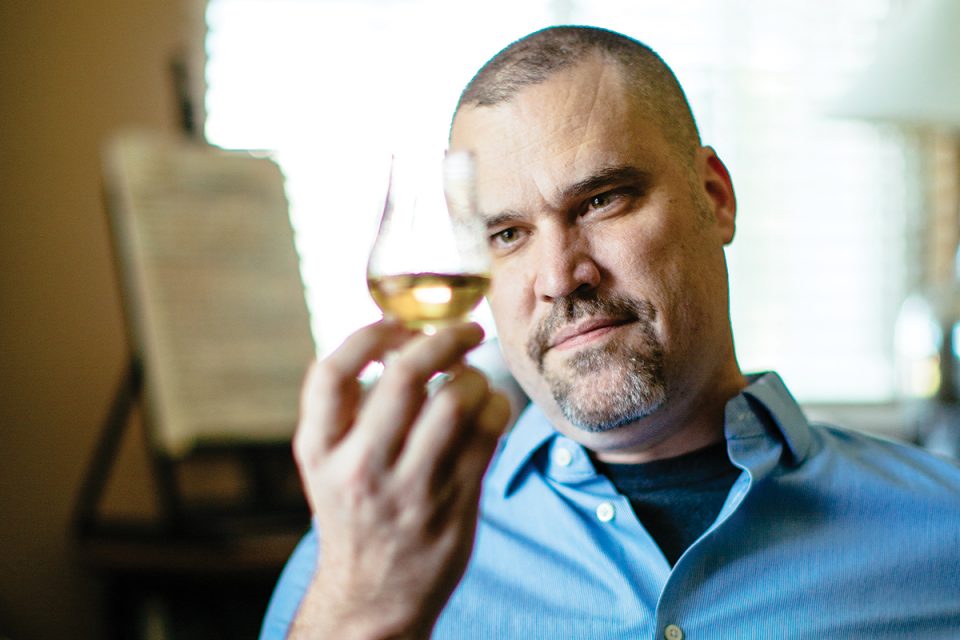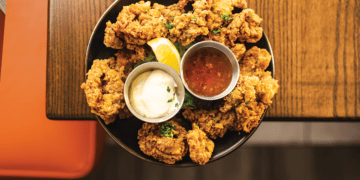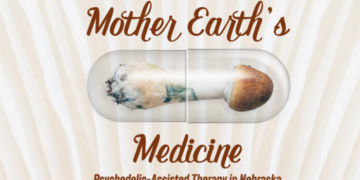Award-winning poet, journalist, editor, and author Ted Genoways of Lincoln, Nebraska, has long been recognized for his social justice writing as a contributor to Mother Jones, onEarth, Harper’s and other prestigious publications. While editor of the Virginia Quarterly Review, the magazine won numerous national awards.
His recent nonfiction books—The Chain: Farm, Factory and the Fate of Our Food, and This Blessed Earth: A Year in the Life of an American Farm—expand on his enterprise reporting about the land, the people who work it, and the food we consume from it. The themes of sustainability, big ag versus little ag, over-processing of food, and environmental threats are among many concerns he explores.
He often collaborates on projects with his wife, photographer Mary Anne Andrei.
His penchant for reporting goes back to his boyhood, when he put down stories people told him, even illustrating them, in a stapled “magazine” he produced. His adult work took root in the form of secondhand stories of his paternal grandfather toiling on Nebraska farms and in Omaha meatpacking plants.
His father noted this precociousness with words and made a pact that if young Ted read a book a week selected for him, he could escape chores.
“I thought that was a great deal,” Genoways says. “Reading John Steinbeck’s Of Mice and Men was the first time I remember being completely hooked. After that, I tore through everything Steinbeck wrote, and it made a huge impact on me. I thought, there’s real power in this—if you can figure out how to do it this well.”
Reading classics by Hemingway, Faulkner, and other great authors followed. The work of muckrakers such as Upton Sinclair made an impression. “But those Steinbeck books,” he says, “have always really stuck with me, and I go back to them and they really hold up.”
Exposing injustice—just as Steinbeck did with migrants and Sinclair did with immigrants—is what Genoways does. Nebraska Wesleyan professors Jim Schaffer and the late state poet of Nebraska William Kloefkorn influenced his journalism and poetry, respectively. Genoways doesn’t make hard and fast distinctions between the two forms. Regardless of genre, he practices a form of advocacy journalism but always in service of the truth.
“I’m always starting with the facts and trying to understand how they fit together,” he says. “There’s no question I’ve got a point of view. But I don’t show up with preconceived notions of what the story is.”
He’s drawn to “stories of people at the mercy of the system,” he says, admitting, “I’m interested in the little guy and in how people fight back against the powers that be.”
While working at the Minnesota State Historical Society Press, Genoways released a book of poems, Bullroarer: A Sequence, about his grandfather, and edited Cheri Register’s book Daughter of a Meatpacker. At the Virginia Quarterly, he looked into worker illnesses at a Hormel plant in Austin, Minnesota, and the glut of Latinos at a Hormel plant in Fremont, Nebraska. He found a correlation between unsafe conditions due to ever-faster production lines—where only immigrants are willing to do the job—and the pressures brought to bear on company towns with influxes of Spanish-speaking workers and their families, some of them undocumented.
That led to examining the impact “a corporate level decision to run the line faster in order to increase production has up and down the supply chain” and on entire communities.
“That’s become an ongoing fascination for me,” Genoways says. “I can’t seem to stop coming back to what’s happening in meatpacking towns, which really seem to be on the front line of a lot of change in this country.”
The heated controversy around TransCanada Corp.’s plans for the Keystone XL pipeline ended up as the backdrop for his book, This Blessed Earth. He found “the specter of a foreign corporation coming and taking land by eminent domain” from legacy farmers and ranchers “and telling them they had to take on this environmental risk with few or no guarantees” to be yet another challenge weighing on the backs of producers.
His focus became a fifth-generation Nebraska farm family, the Hammonds, who grow soybeans, and how their struggles mirror all family farmers in terms of “how big to get and how much risk to assume.”
“They were especially intriguing because they were building this solar and wind-powered barn right in the path KXL decided to cross their land, and that seemed like a pretty great metaphor for that kind of defiance,” he says.
Pipeline or not, small farmers have plenty to worry about.
“Right now, everything in ag is geared toward getting bigger,” Genoways says. “The question facing the entire industry is: How big is big enough? What do we lose when we force farmers off the land or make them into businessmen more than stewards of the land? To my eye, you lose agri-CULTURE and are left with agri-BUSINESS.”
Farming as a way of life is endangered.
“Nebraska lost a thousand farms in 2017,” he says. “Those properties will be absorbed by larger operations. The ground will still be farmed. The connection between farmer and farm will be further stretched and strained. That’s the way everything has gone, and it’s how everything is likely to continue. Agribusiness interests argue these trends move us toward maximum yield with improved sustainability. But it also means decisions are made by fewer and fewer people. Mistakes and misjudgments are magnified. So we not only lose the culture of independence and responsibility that built rural communities, but grow more dependent on a version of America run by corporations.”
Chronicling the Hammonds left indelible takeaways—one being the varied skills farming requires.
“We saw them harvest a field of soybeans while keeping an eye on the futures trading and calling around to elevators to check on prices; they were making market decisions as sophisticated as any commodities trader,” Genoways says. “This is one of the major pressures on family farms. To survive, you have to be able to repair your own center pivot or broken tractor, but also be a savvy business owner—adapting early to technological changes and diversifying to insulate your operation.”
The Hammonds weathered the storm.
“They are doing well. They got good news when the Public Service Commission only approved the alternate route for KXL,” he says.
Meanwhile, Genoways sees an American food system in need of reform.
“We would benefit mightily from a national food policy,” he says. “How can you explain subsidizing production of junk food and simultaneously spending on obesity education? How do we justify unsustainable volumes of meat while counseling people to eat less meat? If we really want people to improve their eating habits, we should provide economic incentives in that direction.”
Visit tedgenoways.com for more information.
This article was printed in the July/August 2018 edition of Omaha Magazine.














